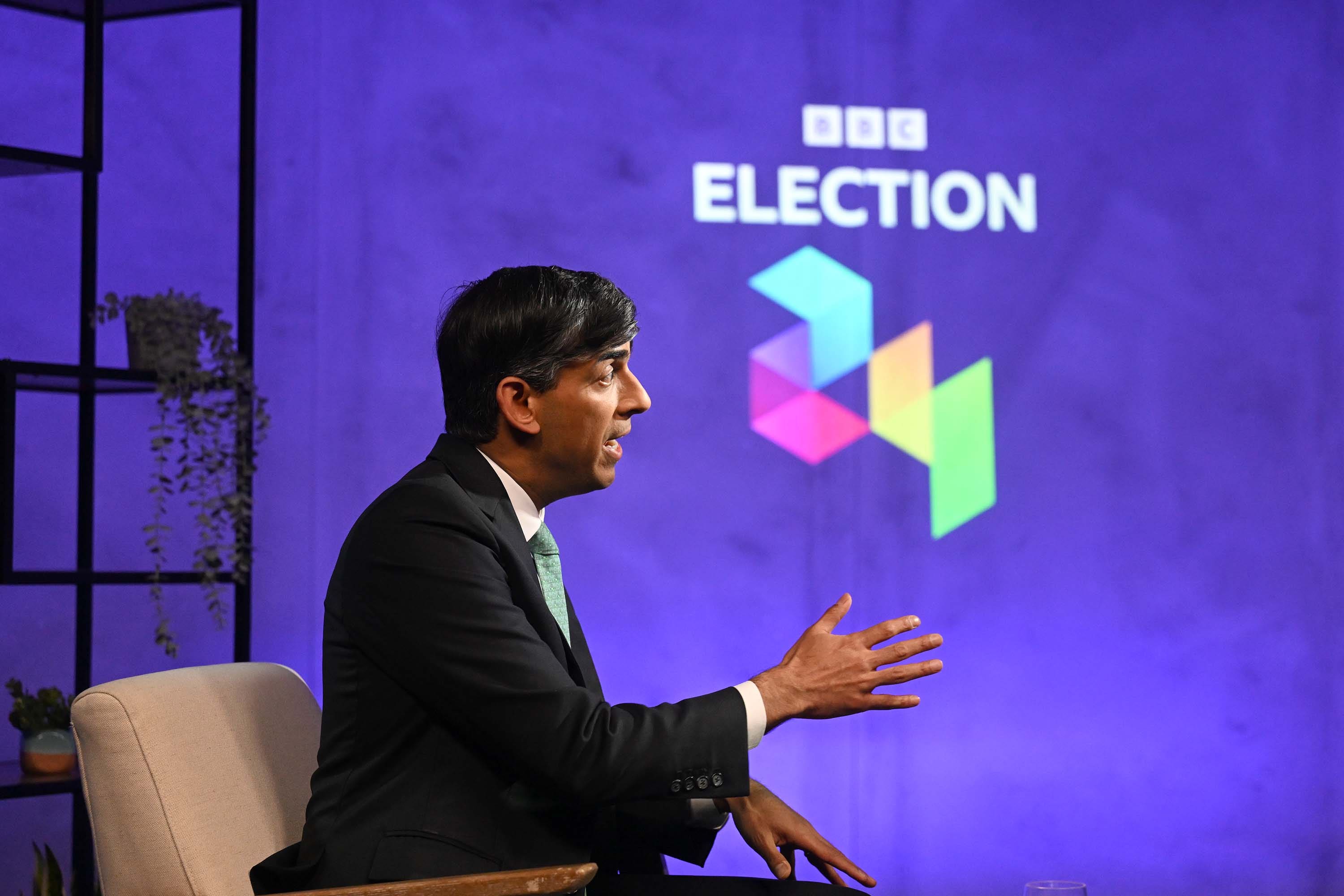Fact check: Rishi Sunak interview and the Lib Dem manifesto
Round-up of claims from the campaign trail checked by Full Fact, including the BBC Panorama interview with Rishi Sunak and the Lib Dem manifesto.

Your support helps us to tell the story
From reproductive rights to climate change to Big Tech, The Independent is on the ground when the story is developing. Whether it's investigating the financials of Elon Musk's pro-Trump PAC or producing our latest documentary, 'The A Word', which shines a light on the American women fighting for reproductive rights, we know how important it is to parse out the facts from the messaging.
At such a critical moment in US history, we need reporters on the ground. Your donation allows us to keep sending journalists to speak to both sides of the story.
The Independent is trusted by Americans across the entire political spectrum. And unlike many other quality news outlets, we choose not to lock Americans out of our reporting and analysis with paywalls. We believe quality journalism should be available to everyone, paid for by those who can afford it.
Your support makes all the difference.This summary of claims from the campaign trail has been compiled by Full Fact, the UK’s largest fact checking organisation working to find, expose and counter the harms of bad information, as part of the PA news agency’s Election Check 24.
Rishi Sunak’s interview on BBC Panorama
On Monday the Prime Minister and Conservative leader Rishi Sunak took part in the first of BBC Panorama’s interviews with party leaders.
Talking about NHS waiting lists, Mr Sunak said they “have risen… they are now coming down”. While it’s true that the number of cases on the main NHS England waiting list has fallen slightly, from a high of 7.8 million in September 2023 to 7.5 million in March 2024, that’s still higher than it was when Mr Sunak pledged that waiting lists would “fall” in January 2023.
Mr Sunak also claimed that net migration was “down 10% from the levels that I inherited”. This is broadly right — it did fall by approximately 10% in 2023 compared to 2022. But it’s worth noting net migration in 2023 was still nearly four times that in 2019, when the Conservatives pledged to bring down “overall numbers”.
Mr Sunak was asked about and defended a claim we’ve heard a lot in the past week, that families would face a £2,000 tax rise under a future Labour government. This figure is unreliable however, and based on a number of questionable assumptions. It comes from a Conservative estimate of Labour’s “unfunded spending commitments”, but many of the costings behind the calculation are uncertain. Even if the figure was right, we can’t be certain this money would be raised by increasing taxes.
Finally, Mr Sunak claimed children in England are “the best readers in the western world”. This appears to be based on the results of a 2022 international study. According to another measure from that year, however, pupils in Ireland and the US were better readers.
Liberal Democrat manifesto
One of the headline-grabbing pledges in the Liberal Democrat manifesto on Monday was the promise to increase the number of full-time-equivalent GPs in England by 8,000. The Lib Dems said this would be achieved “half by boosting recruitment and half from retaining more experienced GPs”.
However, one key detail wasn’t immediately clear — would these 8,000 additional GPs all be fully qualified, or could some be GP trainees? The distinction matters, because we’ve often seen politicians argue over whether GP numbers are rising or falling, when the answer depended entirely on whether or not you included trainees.
After we put this to the Liberal Democrats, a spokesperson clarified “at least 7,000” of the additional GPs would be fully qualified.
The manifesto also claimed Conservative “dysfunction” has “made the asylum backlog soar”.
In June 2023 the asylum backlog reached the highest level on record, with a total of 134,046 applications awaiting an initial decision, relating to 175,475 people.
It has fallen substantially since. At the end of March this year a total of 86,460 applications were awaiting an initial decision—a decrease of 8,792 since the start of the year.
However the asylum backlog remains high by historical standards.